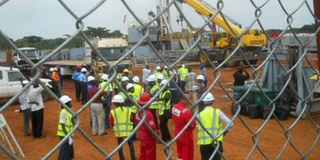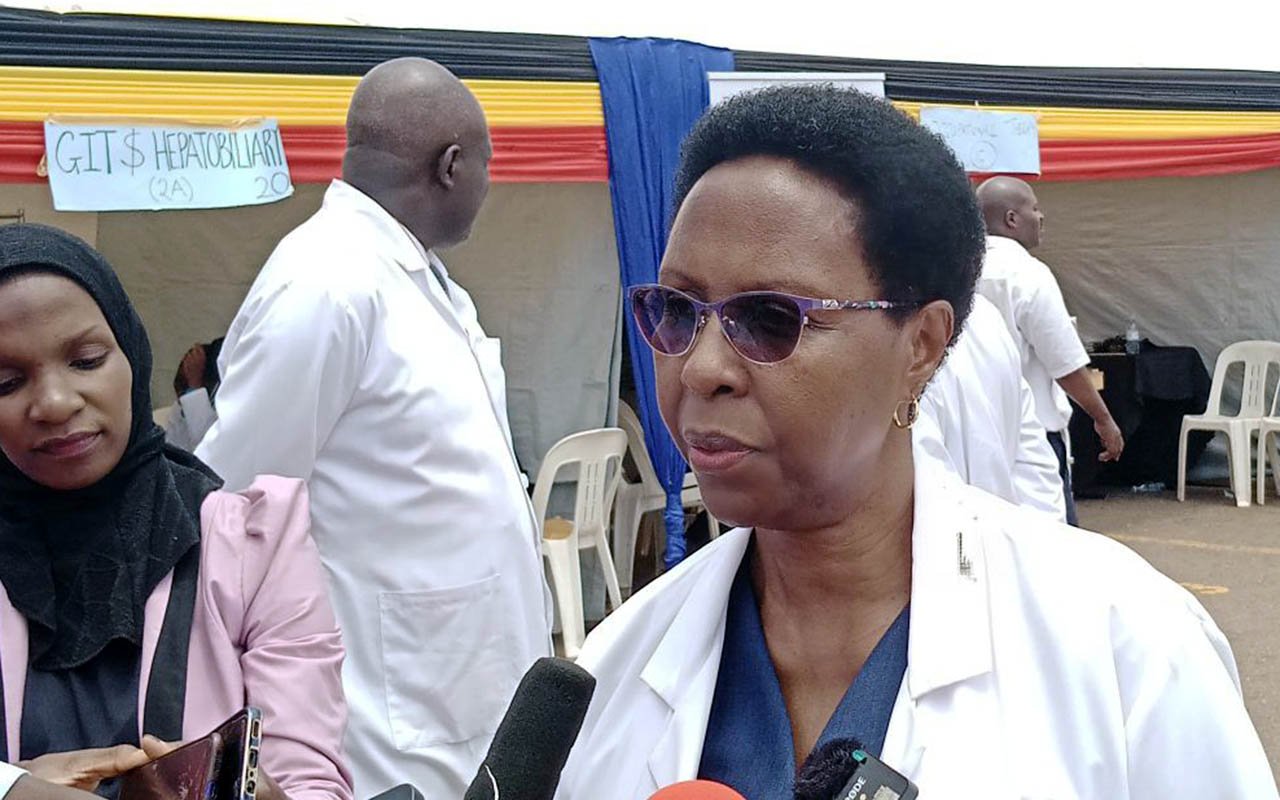Clerics want justice in oil areas

Journalists interact with oil workers at a drilling rig in Buliisa District recently. Religious leaders say people living in areas with oil have been affected by the explorations. PHOTO by FRANCIS MUGERWA.
What you need to know:
Religious leaders say they are overwhelmed with complaints from communities around oil fields.
Hoima
Religious leaders from the Albertine graben have decried alleged injustices faced by communities living in areas where oil has been discovered.
In a meeting organised by Global Rights Alert, an NGO, in Hoima on Wednesday, Clerics under the Inter-Religious Council of Uganda, said they were overwhelmed by complaints from communities claiming to be marginalised and oppressed by players in the oil sector.
The leaders were from Bunyoro, Acholi, Rwenzori and West Nile. Retired Bishop of Kitgum Diocese Mackled Baker Ochola urged leaders to speak up against injustice. “The country is on fire. We should have the conviction to speak against injustice. If we keep quiet amidst, we shall be committing a sin of conspiracy of silence,” Bishop Ochola said. He proposed that Uganda adopts international standards on compensation to address the public outcry from people whose properties have been destroyed.
Various religious leaders claimed that oil companies were destroying crops in gardens and not compensating people. Gulu District Khadi Sheikh Musa Khalil said communities living adjacent to Murchison Falls National Park were overwhelmed by elephants fleeing from areas where oil is being explored. “They say elephants destroy their crops and they do not get any compensation,” he said.
The leaders said residents near oil sites are losing their land to grabbers and feared that oil wastes would be dumped in their communities.
In a resolution, the clerics urged MPs to pass pro-people oil legislations and policies. “We recommend expeditious compensation for people affected by oil operations. Government and oil firms should conduct a skills enhancement in alternative livelihoods for people afflicted by oil operations,” their resolution read in part.
Influencing Ugandans
The executive director of Global Rights Alert, Ms Winnie Ngabirwe, said the religious leaders were being mobilised to use their platform to influence the policies and governance of oil. “They have moral authority to question government and believers,” she said.
Ms Ngabirwe said since religious institutions have over time improved livelihoods through education, health and agricultural programmes, they also have a duty to contribute views on how the oil sector should be governed.
The communication officer in the Petroleum Exploration and Production Department, Ms Gloria Sebikari, said the government was implementing a communication strategy to regularly update all stakeholders about oil developments.



